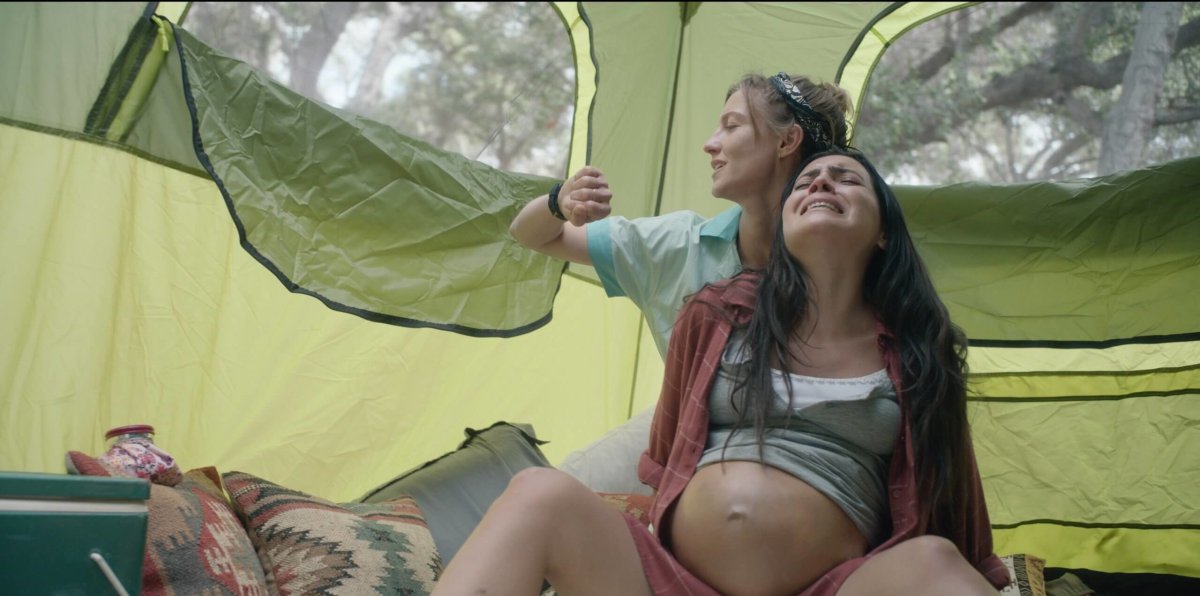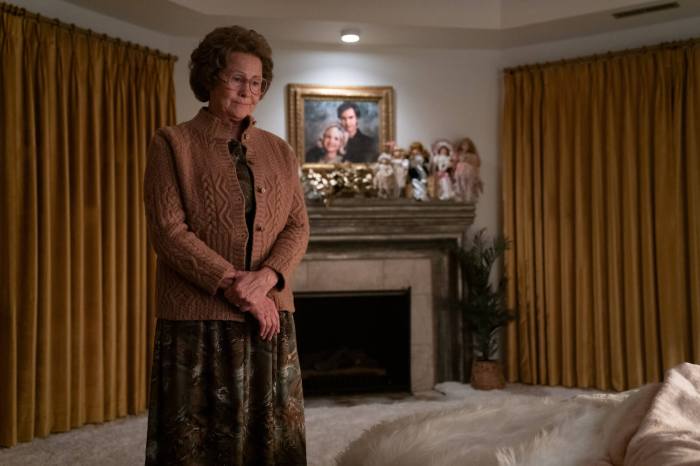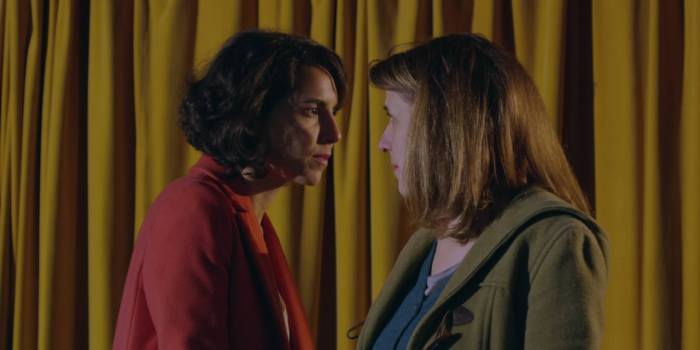A trans documentary, a lesbian-inclusive horror film, a classic lesbian film, a Brazilian film by a gay filmmaker, and an Argentine LGBTQ drama — along with a queer webseries and a trio of queer short films — are all available to stream in November. Here’s a rundown of what to watch.
North By Current
The provocative documentary “North by Current” (on PBS November 1) opens by asking, “How did you become who you became?” Trans filmmaker Angelo Madsen Minax takes a reflective approach to answering this question about identity-formation by investigating his own family members, who are still reeling from the death of his niece, Kalla. Both Madsen’s sister, Jesse, and her partner David, are suspected of child abuse in a case that was initially ruled a tragic accident. But “North by Current” is not a true crime story; instead, the film parses out information—about the case, and about the family history—to examine the truth and lies people tell in order to cope with a difficult reality. In addition, Madsen grapples with some painful remarks regarding his transition. But it is Jesse’s relationship with Madsen that forms the core of the film. Scenes of them talking honestly and openly about events in their lives or recreating a scene from their childhood, are affecting. This is an intimate, personal, and quietly powerful film.
Go Fish
“Go Fish” (Criterion Channel), part of the New Queer Cinema movement, was a watershed release in 1994. This charming romance, set in Chicago, has Max (Guinevere Turner), a “carefree single lesbo looking for love,” being unexpectedly set up with Ely (VS Brodie). Their first date is filled with promise, but Ely confesses that she has a girlfriend — albeit one who lives thousands of miles away in Seattle. As their relationship develops slowly, their mutual friends meet up and discuss the would-be couple’s progress, acting as a Greek chorus. Director Rose Troche fleshes out the story with insight into queer representation, sex and gender roles — including butch/femme dichotomies — and even the best terms for female genitalia. Part of the appeal of “Go Fish” is its scrappy indie vibe and racially diverse cast; it was shot in 35mm black-and-white on a tiny budget ($15,000). “Go Fish” captured magic in a bottle back in the day. It’s worth rewatching. Also on Criterion this month is lesbian director Celine Sciamma’s “Girlhood,” and the camp classic, “Mommie Dearest.”
Lair
On VOD November 9, “Lair” has a flimsy plot but some decent thrills. Steven (Corey Johnson) hopes to get his pal Ben (Oded Fehr) out of jail by proving a Satanic item generated a demon that forced Ben to kill his wife and child. To do this, Steven rents an apartment to lesbian couple Maria (Aislinn De’Ath) and Carly (Alana Wallace) with Maria’s two daughters — teenage Joey (Anya Newall), and 8-year-old Lily (Lara Mount) — in tow. Steven hopes to determine what object unleashed evil spirits by testing it on his tenants. While there are some jump scares and a tense sequence when Lily goes missing at a Pride Parade, the film is best when it gets gory, as when Joey invites some new friends over to the apartment and they all meet their deaths in gruesome ways. Alas, no one believes the traumatized Joey, so more hell breaks loose after the police start to investigate. “Lair” is uneven to be sure, but the music adds to the unsettling atmosphere, and there is plenty of bloodletting.
7 Prisoners
“7 Prisoners,” (on Netflix November 11) by out writer/director Alexandre Moratto, has Mateus (Christian Malheiros, from Moratto’s previous film, “Socrates”) taking a job in São Paulo to earn money for his rural family. However, when he arrives at the junkyard run by Luca (Rodrigo Santoro), Mateus and his fellow workers are enslaved, forced to work off an incurred debt and punished for any transgressions. The observant Mateus makes a series of calculated decisions and figures out how to gain Luca’s trust, if he is going to survive and possibly escape his dire situation. “7 Prisoners” gives light to social issues of poverty, education, power, and human trafficking in Brazil, but this potent film is indicative of equally fraught situations around the world. Moratto’s absorbing drama is a gritty little nail-biter.
Tonight, We Fuck the Trailer Park Out of Each Other
This is a five-part webseries conceived by and starring Ryan Czerwonko, who also directed, and Russell Peck, who wrote the script, based on C. Russell Price’s book of poetry. Russell (Peck) is a genderqueer artist in New York City who is first seen attending a barebacking party with her dealer (Sam Encarnacion). There is a poetic voiceover, and poetic images, such as an abandoned car, as well as flashbacks to Russell’s verbally and physically abusive parents. Russell eventually meets Paul (Czerwonko) whom they call “the unlovable man.” As Russell falls deeper for him, they get dejected when Paul pursues Sarah (Woodlene Alexis). The series exudes low-budget grittiness and features some nifty visuals that express the characters’ despair and desolation. The accomplished “Tonight, We Fuck the Trailer Park Out of Each Other” consists of five episodes, which total less than an hour. It is available on YouTube here.
Bite Size Halloween
Hulu just premiered “Bite Size Halloween,” (also available on Freeform and FX), a series of short films with LGBTQ contact. Three of the entries provide a good sampling. The sweet short, “The New Nanny,” has a non-binary kid (Henry Witcher) embracing the title character (Taylor Ortega), who accepts them — and proves to be adept at making sure her charge has a safe space to play and be themselves. The intense “Freebirth” has Alma (Andrea Londo) about to deliver a baby in the woods guided by her partner, Brooke (Caitlin Gerard). However, both women have different ideas about the process, which leads to a fight that gets physical before an unexpected development occurs. The comedic short “Unicorn” has Charles (Charles Gould, who cowrote), a bisexual joining a couple Larry (Patrick Woodall) and Bella (Brianna Baker) for what he thinks is a threesome. However, what should be a fun, sexy evening quickly becomes awkward and uncomfortable. “Unicorn” gets more amusing — and bloodier — as this kinky comic romp plays out.




























